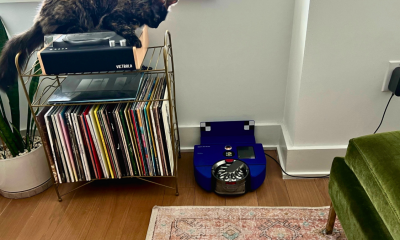Technology
The FCC is demanding companies take action to stop nuisance ‘robocalls’


Internet
Archive Book Images/Flickr
- The US Federal Communications Commission vowed to take action
if US telephone providers fail to curb the amount of “robocalls”
next year. - FCC Chairman Ajit Pat demanded in a letter on Monday that
these companies institute a technology to eliminate spam calls
from phone numbers appearing to be real. - The letter was sent to executives at AT&T,
Verizon, T-Mobile, Alphabet, Comcast, Cox Communications, Sprint,
CenturyLink, Charter Communications, and Bandwith. - YouMail, a California-based company that records data on
robocalls, found that there were roughly 5.1 billion unwanted
calls in the US last month ahead of November elections, Reuters
cited.
WASHINGTON (Reuters) – US Federal Communications Commission
Chairman Ajit Pai on Monday wrote the chief executives of major
telephone service providers and other companies, demanding they
launch a system no later than 2019 to combat billions of
“robocalls” and other nuisance calls received monthly by American
consumers.
In May, Pai called on companies to adopt an
industry-developed “call authentication system” or standard for
the cryptographic signing of telephone calls aimed at ending the
use of illegitimate spoofed numbers from the telephone system.
Monday’s letters seek answers by Nov. 19 on the status of those
efforts.
The letters went to 13 companies including AT&T, Verizon,
T-Mobile US, Alphabet, Comcast, Cox Communications, Sprint,
CenturyLink, Charter Communications, Bandwith, and others.
Pai’s letters raised concerns about some companies current
efforts including Sprint, CenturyLink, Charter, Vonage, Telephone
and Data Systems Inc and its U.S. Cellular Corp unit and Frontier
Communications Corp. The letters to those firms said they do “not
yet have concrete plans to implement a robust call authentication
framework,” citing FCC staff.
The authentication framework “digitally validates the handoff of
phone calls passing through the complex web of networks, allowing
the phone company of the consumer receiving the call to verify
that a call is from the person supposedly making it,” the FCC
said.
YouMail, a company that blocks robocalls and tracks them,
estimated there were 5.1 billion unwanted calls last month, up
from 3.4 billion in April.
The FCC has taken a number of actions to try to deter robocalls
or automated, prerecorded calls that regulators have labeled a
“scourge.”
“We need call authentication to become a reality — it’s the best
way to ensure that consumers can answer their phones with
confidence. By this time next year, I expect that consumers will
begin to see this on their phones,” Pai said.
“I am calling on those falling behind to catch up … If it does
not appear that this system is on track to get up and running
next year, then we will take action to make sure that it does.”
FCC Commissioner Jessica Rosenworcel, a Democrat, earlier this
year called on the FCC to set a deadline and noted “Canada went
ahead and set a 2019 deadline to put this technology in place. We
should be doing the same as our neighbors to the north.”
-

 Business4 days ago
Business4 days agoAPI startup Noname Security nears $500M deal to sell itself to Akamai
-

 Business6 days ago
Business6 days agoYoshi Mobility has come a long way since gassing up cars on the side of the road
-

 Entertainment4 days ago
Entertainment4 days agoHow to watch ‘Argylle’: When and where is it streaming?
-

 Entertainment3 days ago
Entertainment3 days agoNASA discovered bacteria that wouldn’t die. Now it’s boosting sunscreen.
-

 Business4 days ago
Business4 days agoUS think tank Heritage Foundation hit by cyberattack
-

 Entertainment3 days ago
Entertainment3 days agoDyson 360 Vis Nav robot vacuum review: Dyson should just stick to upright vacuums
-

 Business3 days ago
Business3 days agoTesla drops prices, Meta confirms Llama 3 release, and Apple allows emulators in the App Store
-

 Entertainment4 days ago
Entertainment4 days agoCrypto and taxes: Which forms you need to file



















